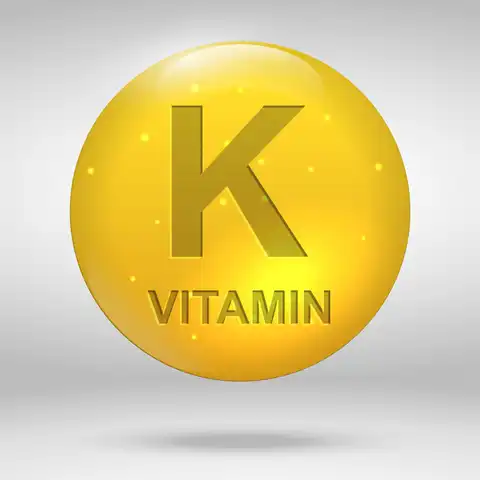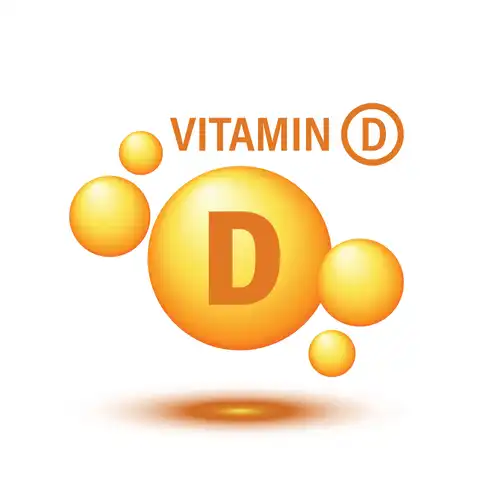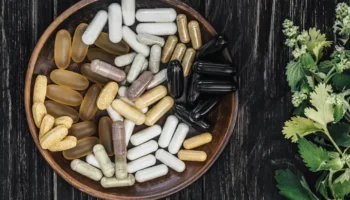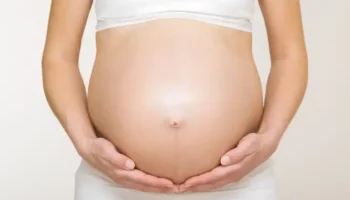If you’re navigating the premenopausal years, you know that hormonal shifts can affect everything from mood to metabolism. But did you know that your bone, heart, and immune health also need extra attention? Enter the dynamic duo: Vitamin D3 and Vitamin K2. These two essential vitamins work synergistically to support your overall well-being during this transitional phase of life.
Why Vitamin D3 is Crucial for Premenopausal Women
Vitamin D3, often called the “sunshine vitamin,” plays a critical role in calcium absorption, immune function, and hormone regulation. As estrogen levels begin to fluctuate in your late 30s and 40s, bone density starts to decline, increasing the risk of osteoporosis later in life.

Key Benefits of Vitamin D3 for Premenopausal Women:
- Supports Bone Health: Helps your body absorb calcium efficiently, reducing the risk of osteoporosis. Research published in the Journal of Clinical Endocrinology & Metabolism indicates that adequate Vitamin D3 levels significantly improve bone mineral density in women over 35.
- Boosts Mood & Mental Well-being: Low vitamin D3 levels are linked to mood swings, anxiety, and even depression. A study from JAMA Psychiatry found a correlation between vitamin D3 deficiency and increased risk of depression in women.
- Strengthens Immune Function: Helps the body fight infections and reduces inflammation. Research from the National Institutes of Health (NIH) suggests that vitamin D3 enhances immune cell response, reducing susceptibility to infections.
- Aids in Hormonal Balance: Plays a role in insulin regulation and thyroid health, both essential during premenopause. A Harvard Health article states that Vitamin D3 deficiency may contribute to metabolic disorders common in premenopausal women.
- Reduces Inflammation: Chronic inflammation is linked to numerous health concerns, including autoimmune disorders and metabolic syndrome, both of which can be exacerbated by hormonal changes during premenopause. Studies suggest that Vitamin D3 plays a role in modulating inflammatory responses.

The Often-Overlooked Role of Vitamin K2
While Vitamin D3 is essential for calcium absorption, Vitamin K2 ensures that calcium is directed to the right places—your bones and teeth—instead of accumulating in arteries and soft tissues. Without enough K2, excess calcium can contribute to arterial stiffness, increasing cardiovascular risk, a concern for many women as they age.

Key Benefits of Vitamin K2 for Premenopausal Women:
- Prevents Arterial Calcification: Directs calcium away from arteries and into bones. A European Journal of Nutrition study found that higher Vitamin K2 intake is linked to a lower risk of arterial calcification.
- Enhances Bone Strength: Works with Vitamin D3 to promote strong, healthy bones. A PubMed study concluded that women taking Vitamin K2 supplements had improved bone mineral density compared to those who didn’t.
- Supports Heart Health: Reduces the risk of cardiovascular diseases by preventing plaque buildup. A Mayo Clinic article states that Vitamin K2 plays a significant role in heart health by reducing calcium buildup in arteries.
- May Improve Skin Elasticity: Helps prevent premature wrinkles by supporting collagen production. Research from The Journal of Dermatological Science suggests that Vitamin K2 supports skin health and elasticity, reducing the signs of aging.
- Regulates Blood Sugar Levels: Studies indicate that Vitamin K2 may play a role in insulin sensitivity and glucose metabolism, both crucial factors in reducing the risk of Type 2 diabetes, which tends to rise as women age.
How Vitamin D3 and K2 Work Together
Taking Vitamin D3 without K2 can lead to an imbalance where calcium is absorbed but not properly distributed. This can contribute to calcium deposits in arteries rather than strengthening bones. The perfect synergy of Vitamin D3 and K2 ensures optimal calcium utilization, promoting both heart and bone health. Research has shown that individuals supplementing with both vitamins exhibit improved arterial flexibility and bone strength compared to those taking Vitamin D3 alone.

Best Food Sources of Vitamin D3 and K2
Vitamin D3 Sources:
- Fatty fish (salmon, mackerel, sardines)
- Egg yolks
- Fortified dairy and plant-based milk
- Mushrooms (exposed to sunlight)
- Sun exposure (at least 15-30 minutes daily)
Vitamin K2 Sources:
- Natto (fermented soybeans – the richest source!)
- Hard and soft cheeses (Gouda, Brie)
- Egg yolks
- Grass-fed butter
- Organ meats
- Fermented vegetables like sauerkraut
Should You Supplement?
While diet and sun exposure are the best sources, many women in premenopause may still have deficiencies due to limited sun exposure, dietary restrictions, or gut health issues that affect nutrient absorption.
When choosing a supplement, look for:
- Vitamin D3 (cholecalciferol) – The most bioavailable form of Vitamin D
- Vitamin K2 (MK-7 form) – Stays active in the body longer than MK-4
- A balanced dosage: Many experts recommend D3 (1000-5000 IU) with K2 (100-200 mcg) daily for optimal benefits.
- Magnesium Inclusion: Since magnesium plays a role in vitamin D metabolism, some high-quality supplements include it to enhance efficacy.
Additional Considerations for Premenopausal Women
- Regular Blood Testing: Since vitamin levels vary significantly between individuals, testing for Vitamin D3 and K2 levels can help tailor supplementation to your needs.
- Exercise for Bone Health: Weight-bearing exercises, such as resistance training and yoga, work synergistically with Vitamin D3 and K2 to improve bone density.
- Healthy Fats for Absorption: Both vitamins are fat-soluble, meaning they should be consumed with dietary fats for maximum absorption.
- Gut Health Matters: A healthy gut microbiome enhances the absorption of Vitamin K2 from food sources, so maintaining good digestive health is essential.
Frequently Asked Questions (FAQs)
1. What time should I take Vitamin D3 and K2? It’s best to take Vitamin D3 and K2 with a meal that contains healthy fats, such as avocados, nuts, or olive oil, to enhance absorption. Morning or midday is ideal to align with your body’s natural rhythms.
2. Should I take Vitamin D3 and K2 together? Yes! Taking them together maximizes their benefits, ensuring that calcium is properly absorbed and directed to your bones instead of arteries.
3. Can I drink coffee with my Vitamin D3 and K2 supplements? It’s best to wait at least 30-60 minutes after taking your vitamins before having coffee. Caffeine may interfere with nutrient absorption and calcium metabolism.
4. How long does it take to see the benefits? Some benefits, like improved mood and energy, may be noticeable within a few weeks, while bone and cardiovascular health improvements typically take months of consistent supplementation.
5. Can I get enough Vitamin D3 and K2 from food alone? It’s possible, but challenging. Many people, especially those with limited sun exposure or dietary restrictions, benefit from supplementation to meet optimal levels.
Final Thoughts
As you transition through premenopause, prioritizing bone, heart, and hormonal health is key. Scientific studies confirm that Vitamin D3 and K2 work together to keep your body strong, resilient, and ready for the next stage of life. Whether through food, supplements, or sunshine, ensuring you get enough of these powerhouse vitamins can make a world of difference in how you feel and function every day.
Ready to take charge of your premenopausal health? Start incorporating more Vitamin D3 and K2 today!







